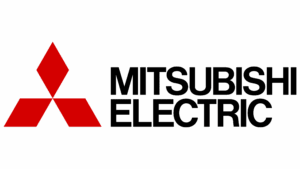In this article, we will explore the numerous advantages of heat pump cooling systems. As the trusted provider of HVAC services, Stay Cool HVAC in Florida offers a wide range of solutions to ensure year-round comfort for homes and businesses. With expertise in split systems, mini splits, package systems, heat pumps, electric heat, air duct work, and insulation, understanding the benefits of heat pump cooling systems is crucial for making informed decisions about your HVAC needs. By the end of this article, you will have a clear understanding of how heat pump cooling systems can enhance your cooling experience and contribute to energy efficiency.
Advantages of Heat Pump Cooling Systems
Heat pump cooling systems offer several advantages over traditional cooling systems. In this article, we will explore the three main advantages: energy efficiency, versatility, and cost savings. Additionally, we will discuss the environmental benefits of using heat pump cooling systems and provide an overview of the different types available in the market. Lastly, we will touch on the importance of professional installation, regular maintenance, and troubleshooting to ensure optimal performance.
Energy Efficiency
One of the key advantages of heat pump cooling systems is their energy efficiency. These systems operate by transferring heat from one place to another, rather than generating cold air. As a result, heat pumps require less energy to cool your space compared to traditional air conditioning units.
How Heat Pumps Work
Heat pumps work by utilizing a refrigerant to absorb heat from indoor air and expel it outdoors. In cooling mode, the refrigerant evaporates, absorbing heat from the indoor environment and cooling the air. The warm refrigerant is then compressed, raising its temperature, and the heat is released outdoors. This process is reversed in heating mode, where the heat pump absorbs heat from the outdoor air and releases it indoors.
Lower Energy Consumption
Due to their energy-efficient operation, heat pump cooling systems consume less electricity than traditional air conditioning units. This can lead to significant savings on your monthly energy bills, especially during peak cooling seasons. By reducing your energy consumption, you can also contribute to a lower demand for electricity and help alleviate strain on the power grid.
Reduced Carbon Footprint
In addition to lower energy consumption, heat pump cooling systems also help reduce your carbon footprint. By utilizing the heat energy present in the surrounding environment, such as outdoor air, ground, or water, heat pumps minimize the reliance on fossil fuels for cooling or heating. This results in lower greenhouse gas emissions, helping to combat climate change and create a cleaner and more sustainable future.
Versatility
Another advantage of heat pump cooling systems is their versatility. These systems are capable of providing both heating and cooling in one unit, making them suitable for year-round comfort.
Heating and Cooling in One System
Heat pumps can easily switch between cooling mode and heating mode, allowing you to maintain a comfortable indoor temperature regardless of the season. Whether it’s cooling your space on hot summer days or keeping you warm during chilly winter nights, heat pump cooling systems offer the convenience of year-round comfort without the need for separate heating and cooling units.
Adaptability to Different Climates
Heat pump cooling systems are designed to adapt to different climates. In regions with moderate climates, they can efficiently cool or heat the indoor space without excessive energy consumption. In areas with extreme temperatures, such as very hot or very cold conditions, heat pumps may require supplemental heating or cooling methods to ensure optimal performance. However, overall, heat pumps offer excellent adaptability and can provide efficient comfort in a wide range of climates.
Year-Round Comfort
With heat pump cooling systems, you no longer have to worry about switching between heating and cooling systems as the seasons change. The versatility of these systems allows you to enjoy comfortable indoor temperatures throughout the year, regardless of the weather outside. This eliminates the hassle of storing, maintaining, and installing separate heating and cooling units, providing you with convenience and peace of mind.
Cost Savings
Heat pump cooling systems can offer significant cost savings over the long term. While the initial investment may be higher compared to traditional air conditioning units, the energy efficiency and potential for tax credits can help offset the upfront cost.
Lower Electricity Bills
One of the main cost-saving benefits of heat pump cooling systems is their lower electricity bills. As these systems require less energy to operate, you can expect to see a decrease in your monthly energy expenses. Over time, these savings can add up, allowing you to allocate your funds towards other priorities.
Potential for Tax Credits
In certain regions, heat pump cooling systems may be eligible for tax credits or incentives. These incentives aim to promote the use of energy-efficient and environmentally friendly cooling options. By taking advantage of these programs, you can further reduce the overall cost of installing and operating a heat pump cooling system.
Long-Term Cost-Effectiveness
Despite the higher initial investment, heat pump cooling systems are generally more cost-effective in the long run. Their energy efficiency and reduced maintenance requirements can result in lower operating and repair costs. Additionally, their long lifespan and durability contribute to their overall cost-effectiveness, providing you with long-term savings and return on investment.
Environmental Benefits
Apart from their financial advantages, heat pump cooling systems also offer several environmental benefits. These systems help reduce emissions, utilize renewable energy sources, and have a lower impact on natural resources.
Reduced Emissions
By using heat energy from the surrounding environment, heat pump cooling systems reduce the need for traditional energy sources that contribute to greenhouse gas emissions. As a result, the use of heat pumps helps minimize air pollution and mitigate climate change.
Renewable Energy Use
Heat pump cooling systems leverage renewable energy sources such as outdoor air, ground, or water. These sources are naturally replenished, making heat pump cooling systems a sustainable choice for cooling and heating needs.
Lower Impact on Natural Resources
Unlike traditional cooling systems that rely on extracting and depleting finite resources, heat pump cooling systems have a lower impact on natural resources. By utilizing heat energy that already exists in the environment, heat pumps reduce the need for excessive resource consumption, preserving the planet’s natural resources for future generations.
Types of Heat Pump Cooling Systems
There are three main types of heat pump cooling systems: air-source heat pumps, ground-source (geothermal) heat pumps, and water-source (hydronic) heat pumps. Each type operates differently and has unique applications and advantages.
Air-Source Heat Pumps
Air-source heat pumps are the most common type of heat pump cooling systems. They extract heat from the outdoor air and transfer it indoors to cool the indoor space. Air-source heat pumps are affordable and relatively easy to install, making them a popular choice for residential and commercial applications.
Ground-Source (Geothermal) Heat Pumps
Ground-source heat pumps, also known as geothermal heat pumps, tap into the constant temperature of the Earth to provide heating and cooling. These systems utilize underground pipes filled with a refrigerant to exchange heat with the ground. While ground-source heat pumps have a higher initial cost compared to air-source heat pumps, they are highly efficient and offer long-term energy savings.
Water-Source (Hydronic) Heat Pumps
Water-source heat pumps, or hydronic heat pumps, use water as the heat source or sink for cooling and heating. These systems are typically used in large installations, such as commercial buildings. They require a complex installation process involving water loops or wells, making them less common in residential applications.
Installation and Maintenance
To ensure the proper functioning and longevity of your heat pump cooling system, professional installation, regular maintenance, and proper troubleshooting are essential.
Professional Installation
It is crucial to have your heat pump cooling system installed by a qualified professional. Professional installation ensures that the system is correctly sized, properly connected, and adequately configured to meet your specific cooling requirements. Improper installation can lead to decreased efficiency, higher energy consumption, and potential system malfunctions.
Regular Maintenance
Regular maintenance is vital for the optimal performance of your heat pump cooling system. This includes cleaning or replacing air filters, inspecting and cleaning outdoor coils, checking refrigerant levels, lubricating moving parts, and ensuring proper airflow. By scheduling regular maintenance with a licensed HVAC technician, you can detect and address any potential issues early on, preventing costly repairs and maintaining the efficiency of your system.
Proper Troubleshooting
In the event of a malfunction or performance issue with your heat pump cooling system, proper troubleshooting procedures should be followed. This may involve checking for common issues such as blocked airflow, clogged filters, or thermostat malfunctions. If you are unable to resolve the issue on your own, it is recommended to seek professional help to avoid further damage or potential safety hazards.
In conclusion, heat pump cooling systems offer numerous advantages, including energy efficiency, versatility, and cost savings. These systems not only provide year-round comfort but also contribute to a lower carbon footprint, reduced emissions, and lower impact on natural resources. By understanding the different types of heat pump cooling systems and ensuring professional installation, regular maintenance, and proper troubleshooting, you can maximize the benefits and longevity of your system. Consider investing in a heat pump cooling system for your home or business and enjoy the advantages it offers.



